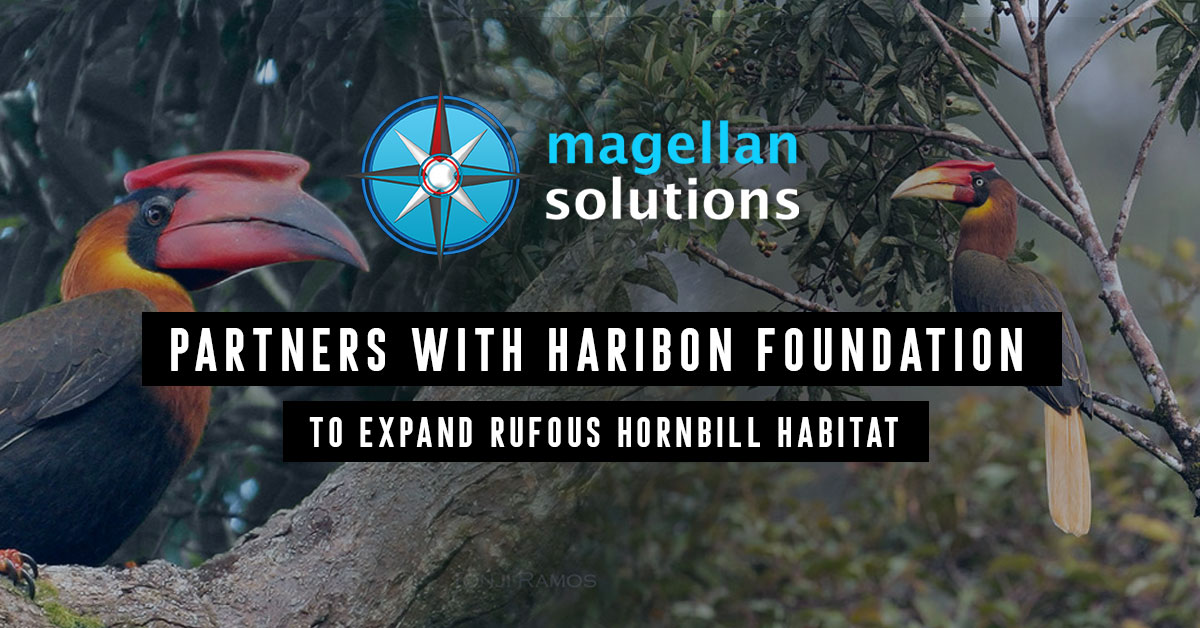Schedule a FREE call with our outsourcing expert now and get a precise quotation that meets your requirements. Don't wait - get started today!
As part of its philanthropic efforts, the Philippine-based business process outsourcing (BPO) company Magellan Solutions partnered with the Haribon Foundation to protect and restore the existing habitats of threatened bird species.
“It’s a race against time, especially since there’s mounting pressure for the country’s economic development,” Haribon Foundation chief operating officer Belinda de la Paz said.
To assist Haribon, Magellan Solutions offered help by asking for a project where they could create more impact towards environment conservation other than the standard tree planting activity.
“Magellan decided to go for this corporate social responsibility with Haribon Foundation because we believe in the long-term sustainable growth of the organization and society,” Magellan Solutions chief executive officer Frederick Chua underlined.
Chua also added that he wanted to focus on environmental preservation because little attention is given to it.
An iconic flagship species
The non-profit organization assigned a vulnerable species for the project.
“We decided to put an iconic species as a flagship species for this project,” J Kahlil Panopio, a wildlife biologist and the project manager of the said partnership, said.
The plan is to expand the existing habitat for the Northern Rufous Hornbill, locally known as Kalaw.
Dubbed the farmers of the forest, the Northern Rufous Hornbill (Buceros hydrothorax) enhances the regenerative capacity of the forest by eating fruits from different trees and dispersing its seeds throughout the forest.
Kalaws are located at Mounts Irid, Angelo, and Binuang Key Biodiversity Area between Bulacan, Quezon, and Rizal, about 40 kilometers northeast of Metro Manila in the southern Sierra Madre Mountains. The Haring Ibon or the Philippine eagle, a highly-threatened bird, can also be found in the said areas.
“We advocate it for the Northern Rufous Hornbill because not many studies are currently being done for the species,” Panopio explained.
He also added that they wanted to find out the population of the species as well as their breeding capacity.
A need for collective efforts
The challenge for this endeavor lies in transforming individuals to protect biodiversity channels.
“Our work would be easier if it’s not just us making the contributions. We will continue to conduct learning sessions, provide opportunities for engaging individuals in tree planting activities or doing volunteer opportunities for our biodiversity,” de la Paz emphasized.
To fulfill those needs, Haribon encourages employees of Magellan Solutions for their involvement in various activities within the project’s scope.
“You can join us to look for the Northern Rufous Hornbill. You can also join us in tree planting activities, and you can also join us in mapping up the habitat of the species. Your help is very much needed to conserve the Northern Rufous Hornbill. We can’t do it alone. We also need the help of the local communities and the prospective volunteers from Magellan Solutions,” Panopio said.
Chua also pledged to have the company’s employees involved in this endeavor.
“Part of the campaign is also an awareness campaign with Magellan employees because we want to make sure that people feel a more supportive company that does not just focus on revenues and the company’s growth but also helping the country, helping the society.”
Chua also believes that by setting a good example, “everybody else will follow and contribute in their ways.”
“Whatever those means are, as long as they are contributing in their means, I think that would be very positive to the overall environment,” he added.
















